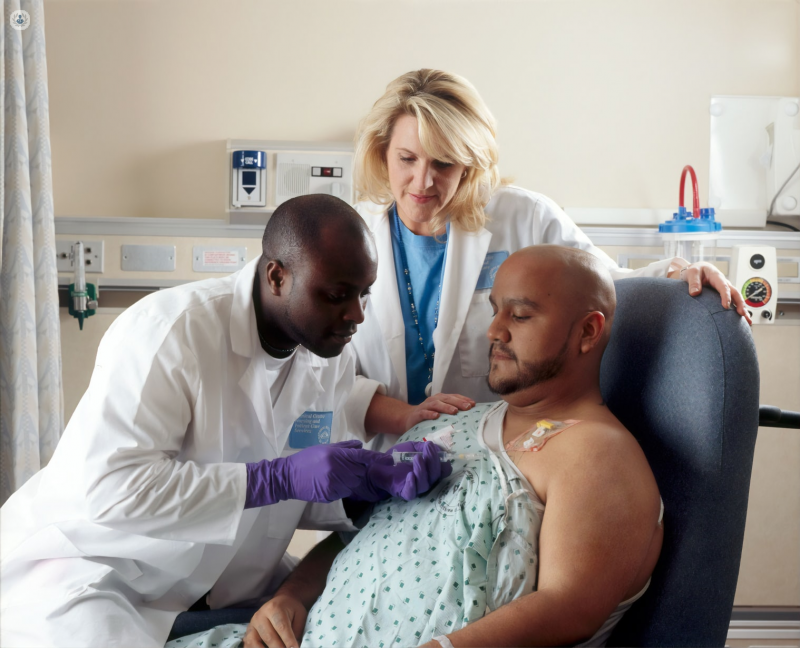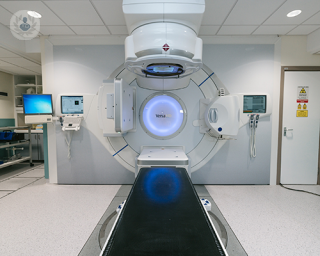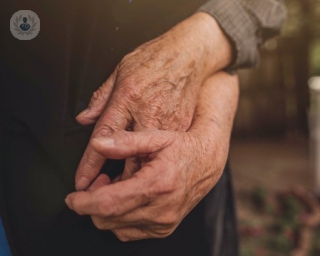Radiotherapy
Professor Chris Nutting - Clinical oncology
Created on: 01-16-2013
Updated on: 10-20-2023
Edited by: Conor Lynch
What is radiotherapy?
Radiotherapy is a cancer treatment that uses high doses of radiation to eliminate cancer cells and reduce tumours. There are two main types of radiotherapy:
- External beam radiotherapy: a beam of radiation is aimed at the tumour from outside the body.
- Internal radiotherapy: in this type of treatment, the source of radiation is placed inside the patient’s body. The radiation source may be a solid or a liquid. The technique is called brachytherapy if the source is solid and systemic radiotherapy if the source is liquid.

Why is it done?
The treatment is used to destroy cancer cells and slow the growth of tumours without harming nearby healthy tissue. More than half of people with cancer receive some type of radiotherapy. In some cases, it is the only treatment required.
Radiotherapy has several applications:
- before surgery, to reduce the size of a tumour so that surgery is more straightforward
- after surgery or chemotherapy, so that the cancer does not return
- in cases in which the cancer cannot be eliminated, palliative radiotherapy may be used to reduce the size of the tumour and hence lessen the symptoms
- in cases in which the cancer cannot be surgically removed
What does it involve?
Radiotherapy damages the DNA of cancer cells, causing them to die or slowing their growth rate. When cancer cells are damaged, they break apart and are then discarded by the body.
Radiotherapy does not eliminate cancer cells immediately. The treatment starts having an effect after some days or weeks. Once the cancer cells start dying, they carry on dying for weeks or months after the end of the treatment.
Several factors are taken into consideration to determine the type of radiotherapy to be administered, including:
- the type of cancer
- the size and location of the cancer
- the proximity of the tumour to normal tissues sensitive to radiation.
- the patient’s general condition and age
- the patient’s medical history
How to prepare for radiotherapy
It is important that you receive clear information about what the treatment will consist of, how long it will take and when it will be carried out. You should also receive information about possible side effects.
You must be well nourished and must tell the medical team any medications or supplements you are taking.
What does aftercare following radiotherapy treatment involve?
After the intervention, you will continue to have appointments with the doctor to check that the treatment is working and that the cancer has not returned. You will be given dietary advice, including eating fruit, vegetables and whole-grain cereals. A healthy diet and strong immune system are important as you will be at higher risk of developing other medical conditions.
You will also receive other recommendations such as to stop smoking, maintain a healthy body weight, cut down or give up alcohol, and be physically active.
What are the main alternatives to radiotherapy?
There are alternatives to radiotherapy. In some cases, treatments such as the following are administered at the same time as or after radiotherapy:














